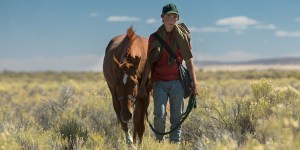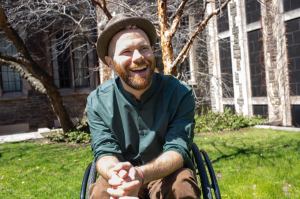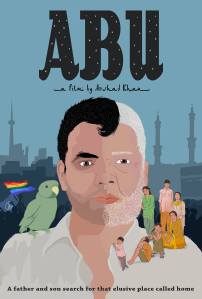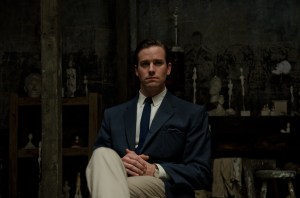Torn from the headlines! Docs reviewed: Active Measures, The Cleaners, The Blue Wall, Blowin’ Up at #HotDocs
Hi, this is Daniel Garber at the Movies for culturalmining.com and CIUT 89.5 FM.
Hot Docs is one of the worlds biggest international documentary film festivals, and this year is its 25th anniversary. Over 200 movies are playing this week– this year featuring docs made in Mexico, along with new movies and festival favourites from the past 25 years.
I love all movies but documentaries have a special appeal: their immediacy, with the newness of the nightly news or online investigative journalism, combined with the grandeur of the camerawork you see on the big screen. And their independence – they’re usually made not by studios or huge media conglomerates but by indie directors – allow it to go places where mainstream movies don’t dare to tread.
This week I’m looking at Hot Docs documentaries torn from the headlines. There’s malfeasance in Moscow, chicanery in Chicago, questioning in Queens, and manipulation in Manila.
Dir: Jack Bryan
Since the wave of Russian immigration to the US in the late 70s, organized crime and soviet spies have had a strong but hidden presence in US finance, real estate and politics. At the head of it all is Vladimir Putin, and  the puppet kept under his control through blackmail is Donald Trump. …or so says a new documentary that traces connections dating back 40 years among the various power brokers. This includes money laundering, insider trading, computer hacking and cyber attacks. All of which culminated in Trumps election.
the puppet kept under his control through blackmail is Donald Trump. …or so says a new documentary that traces connections dating back 40 years among the various power brokers. This includes money laundering, insider trading, computer hacking and cyber attacks. All of which culminated in Trumps election.
 While the film provides lots of historical evidence, it’s told in a style reminiscent of Cold War propaganda, suggesting there’s a Russian hiding behind every potted palm. Parts of it – like banking and real estate schemes, and Russian interference in Estonia and Georgia — seem
While the film provides lots of historical evidence, it’s told in a style reminiscent of Cold War propaganda, suggesting there’s a Russian hiding behind every potted palm. Parts of it – like banking and real estate schemes, and Russian interference in Estonia and Georgia — seem  totally believable; while others — like blaming Russia for Cambridge Analytica — are wild jumps worthy of the worst Glenn Beck conspiracy theory. The talking heads used in the film are, with few exceptions, “experts” who once worked for the CIA or FBI, pundits from conservative think tanks, and centre-right politicians. It is also monolithic in its beliefs, not even entertaining any alternate arguments. You’ll find no dissenting voices here.
totally believable; while others — like blaming Russia for Cambridge Analytica — are wild jumps worthy of the worst Glenn Beck conspiracy theory. The talking heads used in the film are, with few exceptions, “experts” who once worked for the CIA or FBI, pundits from conservative think tanks, and centre-right politicians. It is also monolithic in its beliefs, not even entertaining any alternate arguments. You’ll find no dissenting voices here.
Active Measures gives you a lot to think about, but most of its conclusions are still unproven.
- To read director Jack Bryan’s response to this review, see comments, below.
Dir: Hans Block, Moritz Riesewieck
After the recent revelations about Facebook, with fake news and targeted ads aimed at user profiles, many people are wondering who decides what goes up there and what gets takes down? And are these famous algorithtms doing their jobs? But what people don’t know is there are already people, actual humans, not machines who review what gets censored on the web, on search engines and on social networking  sites. It takes us to an office highrise in Manila in the Philippines, where subcontractors review and decide on tens of thousands of images each day. For example, why did Facebook take down a nude painting of Donald Trump with a small penis that artist Illma Gore posted? It was
sites. It takes us to an office highrise in Manila in the Philippines, where subcontractors review and decide on tens of thousands of images each day. For example, why did Facebook take down a nude painting of Donald Trump with a small penis that artist Illma Gore posted? It was  taken down by this office.
taken down by this office.
The film exposes how these judges judge what they see, and the highly subjective reasoning behind their choices. It also shows how the constant viewing of degrading and disgusting images effects these men and women. The Cleaners is a real eye opener.
Dir: Richard Rowley
In 2014, Jason van Dyke shot and killed an unarmed seventeen year old, Laquan Mcdonald, in front of witnesses on a Chicago street. 16 times in the back of a man walking away from  him. The killing was captured on numerous CCTV sources, in police cars and at a nearby fast food restaurant. You might assume the killer was immediately arrested and put on trial… but you’d be wrong. McDonald was African American, and van Dyke is
him. The killing was captured on numerous CCTV sources, in police cars and at a nearby fast food restaurant. You might assume the killer was immediately arrested and put on trial… but you’d be wrong. McDonald was African American, and van Dyke is  a white police officer. This meant that shortly after the killing, police spokesmen swooped in to frame the narrative the way they wanted the media to cover it. It worked.
a white police officer. This meant that shortly after the killing, police spokesmen swooped in to frame the narrative the way they wanted the media to cover it. It worked.
This film follows the cover up, the investigative  journalist who tried to change the narrative, and the various parties involved in the case… a trail which reached the very top of Chicago’s city hall, and the municipal elections in
journalist who tried to change the narrative, and the various parties involved in the case… a trail which reached the very top of Chicago’s city hall, and the municipal elections in  progress when the story broke. This is a thrilling documentary that examines in depth the legendary “thin blue line” (here called a blue wall) of police brotherhood and the coverups and corruption it spawns. Great documentary.
progress when the story broke. This is a thrilling documentary that examines in depth the legendary “thin blue line” (here called a blue wall) of police brotherhood and the coverups and corruption it spawns. Great documentary.
Dir: Stephahie Wang-Breal
Queens is a magnet for migrants from all around the world, many of whom turn to sex work to make a living. But when the police raid a massage parlour they arrest way more prostitutes than johns or pimps. And for immigrants, especially undocumented ones, an arrest  means jail which means police record wand eventual deportation. But an unusual courtroom in Queens — run by women — is trying to disrupt that pattern. Judge Toko Serita, and lawyers
means jail which means police record wand eventual deportation. But an unusual courtroom in Queens — run by women — is trying to disrupt that pattern. Judge Toko Serita, and lawyers  on both the prosecution and defence side, along with translators, NGOs, social workers and the centre for court innovation are working together for once.
on both the prosecution and defence side, along with translators, NGOs, social workers and the centre for court innovation are working together for once.
Their goal? To let sex workers leave the courtroom with their records swept  clean if they stay out of trouble. Blowin’ Up (a slang term meaning leaving your pimp) is a verité, in-person look at how that courtroom works, as well as the private lives of a few of the subjects.
clean if they stay out of trouble. Blowin’ Up (a slang term meaning leaving your pimp) is a verité, in-person look at how that courtroom works, as well as the private lives of a few of the subjects.
Blowin’ Up is fascinating and informative.
Active Measures, The Cleaners, The Blue Wall, and Blowin’ up are all playing at Hot Docs on from now until Sunday May 6, with daytime screenings free for students and seniors.
This is Daniel Garber at the Movies, each Friday morning, on CIUT 89.5 FM and on my website, culturalmining.com.
Daniel Garber talks with Scott Jones and Laura Marie Wayne about their new doc Love, Scott
Hi, this is Daniel Garber at the Movies for culturalmining.com and CIUT 89.5 FM.
Scott Jones is a young musician just back in Canada after a stint abroad. He’s giving music lessons in a small town in Nova Scotia, when something terrible happens. He’s brutally attacked by a stranger and left to die. But he doesn’t die. He comes back with a new mission: to use music to tell Canadians about the reallife consequences of homophobia. Despite his disability, he conducts a full choir to tell his story and spread his love.
to die. But he doesn’t die. He comes back with a new mission: to use music to tell Canadians about the reallife consequences of homophobia. Despite his disability, he conducts a full choir to tell his story and spread his love.
And he’s the subject of a new, deeply personal  documentary made by a close friend he met in music school. It’s a story of hatred and loss that leads to love and rebirth. The NFB documentary is called Love, Scott.
documentary made by a close friend he met in music school. It’s a story of hatred and loss that leads to love and rebirth. The NFB documentary is called Love, Scott.
It’s director Laura Marie Wayne’s first film.
I spoke with Scott and Laura at CIUT 89.5 FM during Hot Docs.
Daniel Garber talks with Carlyle Jansen, founder of Toronto International Porn Festival
 Hi, this is Daniel Garber at the Movies for culturalmining.com and CIUT 89.5 FM.
Hi, this is Daniel Garber at the Movies for culturalmining.com and CIUT 89.5 FM.
In Toronto the Good, sex was a dirty word and pornography a crime until just a few decades ago. Now, though, here and around the world, porn is an enormous — and quite legal — industry worth an estimated $60 billion dollars. That  means they make a lot of movies. Toronto is a city of movie lovers with over 100 film festivals. So how come there’s no film festival devoted to porn? The answer is: there is!
means they make a lot of movies. Toronto is a city of movie lovers with over 100 film festivals. So how come there’s no film festival devoted to porn? The answer is: there is!
It’s called the Toronto International Porn Festival and it’s on now until Sunday. The festival includes including screenings, workshops and panel  discussions dealing with a panoply of sexualities and gendres and ideologies. It was founded by noted sex education expert Carlyle Jansen, who trains sex therapists on topics ranging from sexual pleasure to sexual challenges. You may
discussions dealing with a panoply of sexualities and gendres and ideologies. It was founded by noted sex education expert Carlyle Jansen, who trains sex therapists on topics ranging from sexual pleasure to sexual challenges. You may  have seen her Ted Talk or read her two books: Anal Sex Basics and Sex Yourself: The Woman’s Guide to Mastering Masturbation and Achieving powerful Orgasms.
have seen her Ted Talk or read her two books: Anal Sex Basics and Sex Yourself: The Woman’s Guide to Mastering Masturbation and Achieving powerful Orgasms.
I spoke with Carlyle Jansen in studio at CIUT 89.5 FM. She talked about Porn Fest, diversity in porn, exploitation, reversing genders, body types, sex work, science fiction, Erika Lust, Bruce LaBruce, breastfeeding… and more!
Toronto International Porn Festival is running from now through Sunday, April 22, 2018 at The Royal Cinema and Super Wonder.
Movies Made by Women. Films reviewed: What Will People Say?, Zama
Hi, this is Daniel Garber at the Movies for culturalmining.com and CIUT 89.5 FM.
Spring festival season is on right now, with two or three new ones popping up each week. There are established festivals like Hot Docs, celebrating its 25th anniversary, as well as some new ones. Reelabilities is only in its third year, but already programs a full international slate of dramas and docs – and even a comedy night — for and about people with deafness, mental illness, autism, down’s syndrome, and many others. And they’re dealing with important topics like sexuality and disabilities and disability rights. This week I’m looking at two movies directed by women and that played film festivals in Toronto (TIFF, Human Rights Watch Film Fest). There’s a coming-of-age drama about a Norwegian schoolgirl whose parents come from Pakistan, and an historical drama about a colonial Argentine whose ancestors came from Spain.
Dir: Iram Haq
Nisha (Maria Mozdah)is a high school student living in a snow-swept Oslo housing project. She has beautiful long hair, dark eyes and a shy but winning smile. Nisha is a typical Norwegian girl. She hangs with a tight-knit group of friends for partying, listening to music, texting. At night, though, she’s the grudgingly loyal daughter to her traditional Pakistani parents. She is the apple of her fathers eye. Mirza (Adil Hussein) piles money and gifts on his smart and beautiful  daughter whom he dreams of becoming a doctor or an engineer. But Her mother is more strict, always wondering what other people – meaning people from Pakistan – will say, if they see Nisha doing outrageous things like… dancing? Little does she know. she’s dating a guy named Daniel who looks like Archie Andrews. But when her dad catches them in her bedroom, flirting, all hell breaks loose.
daughter whom he dreams of becoming a doctor or an engineer. But Her mother is more strict, always wondering what other people – meaning people from Pakistan – will say, if they see Nisha doing outrageous things like… dancing? Little does she know. she’s dating a guy named Daniel who looks like Archie Andrews. But when her dad catches them in her bedroom, flirting, all hell breaks loose.
Before she knows what’s happening she’s on a plane to Pakistan on her way to a relative’s home in a remote town. They take away her phone, burn her passport, and forbid her from using the internet. Mirza says he’s doing it for her own good, but Nisha feels betrayed, lost and abandoned. And then there’s the physical dangers. She can’t just put on a hoodie and explore the streets alone like she did in Norway. Only a young cousin who idolizes her, and Amir, a boy she likes, make her life worth living. But her eyes and tastebuds are  awakening to new sights and flavours she never encountered in cold, grey Norway. She gradually adapts to her new home…. until a big change threatens her life and her future. Will she ever regain her old life and friends? Can she achieve success as a woman? And will she and her family learn to accept each other?
awakening to new sights and flavours she never encountered in cold, grey Norway. She gradually adapts to her new home…. until a big change threatens her life and her future. Will she ever regain her old life and friends? Can she achieve success as a woman? And will she and her family learn to accept each other?
What Will People Say is a great coming-of-age drama that’s a bit of a thriller, too. It gives a multi-faceted look at a teenaged girl, partly self-centred and spoiled, partly facing a miserable life not of her own making. Pakistan is portrayed as a scary and violent place but also a vibrant and beautiful one, filled with both kindness and terror. The director (herself of Pakistani/ Norwegian background) eschews what could have been a one-sided kidnapping thriller in favour of a realistic and touching drama. She avoids easy stereotypes opting instead for a nuanced and loving look.
Wri/Dir: Lucrecia Martel
It’s 300 years ago in imperial Spain in South America.
Don Diego Zama (Daniel Giménez Cacho) is a low- level magistrate decked out in a white wig and three cornered hat, with a bright reddish jacket and a shiny sword. He’s there to provide justice and compassion in disputes among the colonists, their slaves and the indigenous peoples in the remote colony of Asunción. But he soon discovers his rulings are ignored, his requests disregarded, and his status questioned. He’s far from his wife in Buenos Aires, and his native mistress in Asunción doesn’t like him much, even after she  gives birth to his son.
gives birth to his son.
His life depends on the indulgences of a king in far off Spain, and a corrupt and decadent local Governor who spends most of his time gambling to win obscene tokens of power. He covets worthless geodes and decrepit ears sliced off a dead convict’s head. Colonial landholders slaughter Indios with impunity. As his life gets worse and worse, Zama feels trapped in a cesspit he can’t climb out of.
He finally gets his chance by joining a posse searching for Vicuña Porto (Matheus Nachtergaele) a villainous criminal terrorizing the locals. But his search seems equally  pointless and circuitous, achieving nothing, waiting for a Godot who may never arrive.
pointless and circuitous, achieving nothing, waiting for a Godot who may never arrive.
On his journey he faces dangers and fascinations both real and imagineary: small boys with psychic abilities, hidden ghosts and potergeists infecting his lodges. People appear and disappear, seamingly at random, dying and coming back to life, in a colourful whirlwind of unexplained phenomena.
Zama is a fantastic, non-linear adventure based on an Argentinian novel. It explores name and identity, position and class, and race and ethnicity in Colonial Spain. Indigenous languages are spoken without subtitles – we hear it all through Zama’s ears.
I’m not going to pretend I completely understood this movie, but like Embrace of the Serpent  (which I reviewed here), the images and exotic scenes in Zama are so engrossing I didn’t worry too much about the plot. Picture a group of women on a riverbank covering their naked bodies with thick brown mud. And the scenery in Argentina’s northeast Formosa province — green moss, sweeping hills, twisting rivers and impossibly tall bare tree trunks — is like seeing those Dr Seuss books I read as a kid again but in real life.
(which I reviewed here), the images and exotic scenes in Zama are so engrossing I didn’t worry too much about the plot. Picture a group of women on a riverbank covering their naked bodies with thick brown mud. And the scenery in Argentina’s northeast Formosa province — green moss, sweeping hills, twisting rivers and impossibly tall bare tree trunks — is like seeing those Dr Seuss books I read as a kid again but in real life.
What a great movie.
Zama opens today in Toronto. check your local listings.What will people say is playing at Human Rights Watch film fest. This is Daniel Garber at the Movies, each Friday morning, on CIUT 89.5 FM and on my website, culturalmining.com.
Daniel Garber talks with director Håvard Bustnes about his new doc Golden Dawn Girls
 Hi, this is Daniel Garber at the Movies for culturalmining.com and CIUT 89.5 FM.
Hi, this is Daniel Garber at the Movies for culturalmining.com and CIUT 89.5 FM.
It’s the 2010s in Greece. The EU and northern European banks are foreclosing on Greek debt, demanding the country adopt austerity measures. There is talk of Grexit — Greece  pulling out of the European Union altogether. Newcomers, fleeing war in the Middle East and Africa, are seeking refuge on their shores. And new political parties are springing up amidst the turmoil, with one, the leftist Syriza, eventually rising to prominence. But on the extreme right, another party arises. Golden Dawn combines Nazi regalia, fascist ideology, and anti-immigrant violence in its attempt to seize power. What is Golden Dawn,
pulling out of the European Union altogether. Newcomers, fleeing war in the Middle East and Africa, are seeking refuge on their shores. And new political parties are springing up amidst the turmoil, with one, the leftist Syriza, eventually rising to prominence. But on the extreme right, another party arises. Golden Dawn combines Nazi regalia, fascist ideology, and anti-immigrant violence in its attempt to seize power. What is Golden Dawn,  what does it stand for, and who are the people in its inner circle?
what does it stand for, and who are the people in its inner circle?
A bold new documentary looks at the party from an insiders’ point of view. The filmmaker gained access by appealing to the women closest to the party leaders – a  mother, a wife and a daughter – who offer their candid insights while the men are in jail. The documentary is Golden Dawn Girls, by the noted Norwegian filmmaker Håvard Bustnes.
mother, a wife and a daughter – who offer their candid insights while the men are in jail. The documentary is Golden Dawn Girls, by the noted Norwegian filmmaker Håvard Bustnes.
I spoke to Håvard in Norway via telephone from CIUT 89.5 FM in Toronto.
Golden Dawn Girls will have its North American premier at Toronto’s Hot Docs International Documentary Film Festival on May 1st, 2018.
Serious. Films reviewed: Beirut, Abu, Indian Horse
Hi, this is Daniel Garber at the Movies for culturalmining.com and CIUT 89.5 FM.
Spring film festival season is on now. Look out for Cinefranco featuring films from Québec; Human Rights Watch Film Fest with films from around the world, and here’s a new one: The Toronto International Porn Film Festival! This week, though, I’m looking at some serious movies. There’s a spy thriller set in Lebanon, a family memoir in Pakistan and Canada, and a drama about Canada’s residential schools.
Dir: Brad Anderson
It’s 1972 at the US Embassy in Beirut. Mason (Jon Hamm) and his wife are hosting a party for bigwigs from Washington. Helping out is Karim, an earnest 12-year-old Palestinian kid who they treat like a son. But all is not well. His best friend, Cal, a CIA agent  tells him something’s up with that cute little boy so they’re just going to take him away to a dark cell somewhere for awhile.
tells him something’s up with that cute little boy so they’re just going to take him away to a dark cell somewhere for awhile.
What–? Mason objects, but just then, gunmen enter the embassy, kill his wife, and drive off with the boy. Mason’s life is ruined. Ten years later he’s back in the States, staying just  sober enough to keep his job as a labour negotiator… when out of the blue comes an urgent call: top government officials wants him back in Beirut, but they won’t say why.
sober enough to keep his job as a labour negotiator… when out of the blue comes an urgent call: top government officials wants him back in Beirut, but they won’t say why.
He is met by Sandy (Rosamund Pike) in the now wartorn city, who fills him in. Militants have kidnapped an American and have asked Mason to negotiate. Turns out the kidnappee is his old friend Cal, and the kidnapper? Little Karim, now all grown up. Can Mason defuse the tensions, negotatiate a trade between the  CIA, the Mossad, the PLO, the Lebanese government, splinter groups and corrupt officials? Or will the intrigue and subterfuge prove too much for him to handle?
CIA, the Mossad, the PLO, the Lebanese government, splinter groups and corrupt officials? Or will the intrigue and subterfuge prove too much for him to handle?
Beirut is a neat and taut action thriller with lots of suspense  amidst the twists and turns. (The script is by Tony Gilroy who did the Bourne trilogy.) Poltically, though, it’s a total mess. The film is loaded with visual “shorthand”, so 1982 Lebanon is represented by a woman in a niqab beside a camel on the beach! Really?? This isn’t Saudi Arabia in 2018, it’s Lebanon in 1982. The movie also implies that every Arab child is a potential terrorist in the making.
amidst the twists and turns. (The script is by Tony Gilroy who did the Bourne trilogy.) Poltically, though, it’s a total mess. The film is loaded with visual “shorthand”, so 1982 Lebanon is represented by a woman in a niqab beside a camel on the beach! Really?? This isn’t Saudi Arabia in 2018, it’s Lebanon in 1982. The movie also implies that every Arab child is a potential terrorist in the making.
Still the acting is good, the pace brisk and the game-theory-fuelled plot is fascinating to watch.
Wri/Dir: Arshad Khan
Arshad is a little kid growing up in Pakistan to an Army engineer dad and an upper-class mom. He likes dancing to disco music and being flamboyant. And by his teenaged years he’s secretly dating another boy. The parents find out and he is deeply humiliated.
Later, the family moves to Canada, where he stands out for a different reason. Suddenly, he’s Pakistani, he’s an immigrant, he’s a person of colour – with all the racism that comes with his new identity. Arshad  gradually feels his way through an unfamiliar, racialized setting, as a South Asian, as a Canadian, as a gay man, and as a political activist. His parents veer in the opposite direction. They gradually turn to fundamentalist Islam, which they learn about in their new home. Can this family stay together?
gradually feels his way through an unfamiliar, racialized setting, as a South Asian, as a Canadian, as a gay man, and as a political activist. His parents veer in the opposite direction. They gradually turn to fundamentalist Islam, which they learn about in their new home. Can this family stay together?
 Abu is deeply personal film, that serves as both a tribute to Arshad’s parents (Abu means father) and a look at his own life. It’s filled with family photos, videos, and interviews – his parents were movie enthusiasts who recorded everything. These random vignettes are strung together with an unusual plot device – an animated version of a dream he has that proves prophetic. Though the story is routine, much like what countless other new immigrants to Canada experience, I love the way the film puts everything – history, pop culture, music – into a larger context.
Abu is deeply personal film, that serves as both a tribute to Arshad’s parents (Abu means father) and a look at his own life. It’s filled with family photos, videos, and interviews – his parents were movie enthusiasts who recorded everything. These random vignettes are strung together with an unusual plot device – an animated version of a dream he has that proves prophetic. Though the story is routine, much like what countless other new immigrants to Canada experience, I love the way the film puts everything – history, pop culture, music – into a larger context.
Dir: Stephen S. Campanelli
Based on the novel by Richard Wagamese
It’s the 1950s in Northern Ontario. Saul Indian Horse (Sladen Peltier as young Saul; Forrest Goodluck as teen Saul; Ajuawak Kapashesit as  adult Saul) is a young boy raised by his grandmother (Edna Manitowabi) who teaches him the Ojibway ways. Until the day government officials arrive in a fancy car who literally pull him out of his grandmother’s arms. They leave him at St Jerome’s a Catholic residential school where they can “kill the Indian in
adult Saul) is a young boy raised by his grandmother (Edna Manitowabi) who teaches him the Ojibway ways. Until the day government officials arrive in a fancy car who literally pull him out of his grandmother’s arms. They leave him at St Jerome’s a Catholic residential school where they can “kill the Indian in  him”. Right away they cut off his hair, forbid him from speaking his language. The school is run by cruel priests and nuns, who abuse the kids physically and psychologically. Some are tortured, even locked up in a cage in the basement. Saul is a survivor and stays out of trouble, unlike his best friend who can’t hack it… and suffers terribly.
him”. Right away they cut off his hair, forbid him from speaking his language. The school is run by cruel priests and nuns, who abuse the kids physically and psychologically. Some are tortured, even locked up in a cage in the basement. Saul is a survivor and stays out of trouble, unlike his best friend who can’t hack it… and suffers terribly.
Saul comes up with a way to get out of the place: hockey. He’s  seen it on B&W TV at school and it speaks to him. He’s sure if he learns to skate and practices on his own every morning, hockey will save him. He’s helped by way of a deal he makes with Father Gaston (Michiel Huisman), a friendly priest who takes a liking to him. It turns out Saul’s right – he is a fantastic player. He joins a native hockey team up north and slowly climbs his way up the ladder. He faces racism and discrimination at every step but he keeps his identity and sense of self. Eventually he gets drafted to the NHL and sent to Toronto – their first
seen it on B&W TV at school and it speaks to him. He’s sure if he learns to skate and practices on his own every morning, hockey will save him. He’s helped by way of a deal he makes with Father Gaston (Michiel Huisman), a friendly priest who takes a liking to him. It turns out Saul’s right – he is a fantastic player. He joins a native hockey team up north and slowly climbs his way up the ladder. He faces racism and discrimination at every step but he keeps his identity and sense of self. Eventually he gets drafted to the NHL and sent to Toronto – their first  indigenous player. But deep inside, something from his past is eating away at him. What will become of Saul? Will he succeed in his dreams? Or will his experiences at the residential school drag him down?
indigenous player. But deep inside, something from his past is eating away at him. What will become of Saul? Will he succeed in his dreams? Or will his experiences at the residential school drag him down?
Indian Horse is a deeply moving story, starring indigenous actors playing Saul at each stage of his life. It exposes a recent, shameful part of Canadian history, and one that’s still being felt today. The movie is not perfect or without flaws — it was made with a limited budget, and isn’t a Hollywood-style pic with a feel-good ending. But I think it’s a really good drama about an important topic, and one that should be required viewing across this country.
Beirut, Abu and Indian Horse all open today in Toronto; check your local listings. Also opening is the fantastic, realistic drama Lean on Pete which I reviewed here last September and is also on my New Year’s list of best movies of the year.
This is Daniel Garber at the Movies, each Friday morning, on CIUT 89.5 FM and on my website, culturalmining.com.
Art and Sport. Films Reviewed: The Miracle Season, Final Portrait, PLUS Steve Reinke’s films at Images
Hi, this is Daniel Garber at the Movies for culturalmining.com and CIUT 89.5 FM.
Toronto’s Images, the International Festival of Moving Image Culture, opens next Thursday with Canadian and international video artists and filmmakers… featuring the work of Steve Reinke. This week, I’m going to talk about films by artists, and films about artists, with some sports thrown in, too. There’s an American volleyball team, a Swiss sculptor, and a Canadian video artist.
Dir: Sean McNamara
Caroline and Kelly have been best friends since childhood. “Line” (Danika Yarosh) is the always chirpy optimist who Kelly (Erin Moriarty) looks up to. Growing up in rural Iowa, they share their secrets amidst big barns and cornfields. In high school they play volleybal together. With Line as team manager and setter they win the State Championships. Of course the other team members, andtheir hard boiled coach (Helen Hunt) are important, but it’s really Line who leads the team to victory.
But the next year things take a turn for the worse. The team is dispirited and Line’s Mom has cancer. Then the unthinkable happens; Line dies in a crash. Kelly feels guilty, and so does Line’s dad Ernie (William Hurt) who used to throw team parties and boost the players. With no Line around to pull people out of their misery, the team slides to last place. They don’t even want to be happy – it’s  disrespectful. It falls to Kelly to turn the team around. Can she do it, and will the team ever win again?
disrespectful. It falls to Kelly to turn the team around. Can she do it, and will the team ever win again?
The Miracle Season is a nice movie about teamwork and overcoming loss. It has good acting and a conventionally inspiring story. “Nice” is the key word here. Based on a true story, it was made by permission of the charity founded by the Line’s father. So as you can expect, anything not super “nice” has been scrubbed from the plot. No sex, no violence here. They could show this movie at Bible Camp without raising an eyebrow. Which makes it a nice memorial for teammates and family members, but for the rest of us, it’s just a dull and predictable movie. But, like I said, it’s still nice.
Dir: Stanley Tucci
It’s early 1960s. James Lord (Armie Hammer) is a young American living in Paris who writes biographies of well known artists. He’s friends with both Picasso and the Swiss-Italian sculptor Alberto Giacometti (Geoffrey Rush). Giacometti is famous for his sculptures of people with crusty and extremely elongated arms and legs. But he also paints. And one day he asks James to pose for him for a few hours. He sits down in Alberto’s  studio dressed in khakis, navy blue sports jacket and shirt and tie. But the one-day painting turns into a project lasting days and then weeks, until no one knew if it would ever end. Each time he paints his face, Alberto rubs it all out and starts again. Meanwhile, various
studio dressed in khakis, navy blue sports jacket and shirt and tie. But the one-day painting turns into a project lasting days and then weeks, until no one knew if it would ever end. Each time he paints his face, Alberto rubs it all out and starts again. Meanwhile, various  people in his life walk in and out adding colour to the story. His brother Diego (Tony Shalhoub) has seen it all before. His neglected wife Annette (Sylvie Testud) refuses to pose for him anymore. And his mistress Caroline (played by the delightfully-named Clémence Poésy) would rather go for a jaunt in their sportscar than just hang at the studio. Final Portrait has some fun parts, but basically this movie is 90 minutes of watching paint dry.
people in his life walk in and out adding colour to the story. His brother Diego (Tony Shalhoub) has seen it all before. His neglected wife Annette (Sylvie Testud) refuses to pose for him anymore. And his mistress Caroline (played by the delightfully-named Clémence Poésy) would rather go for a jaunt in their sportscar than just hang at the studio. Final Portrait has some fun parts, but basically this movie is 90 minutes of watching paint dry.
Steve Reinke is a queer Canadian artist and filmmaker, originally from the Ottawa valley but now based in Chicago. I’ve seen a lot of his films in the past 20 years, but for the  first time I spent last night binge-watching them all together (which is quite an experience). If you’ve never seen Reinke’s stuff before, you should.
first time I spent last night binge-watching them all together (which is quite an experience). If you’ve never seen Reinke’s stuff before, you should.
He’s been shooting films and videos that chronical his life, his thoughts, aesthetics, and interests — both intellectual and sexual – beginning in the late 1970s and continuing till now. And unlike  a lot of gallery video artists, his films are never boring. (This is important.) Like porn, a Reinke film is hard to define, but you know it when you see it. (But that doesn’t mean you’ll understand it.)
a lot of gallery video artists, his films are never boring. (This is important.) Like porn, a Reinke film is hard to define, but you know it when you see it. (But that doesn’t mean you’ll understand it.)
Taken at face value, his collection is an ongoing, partly-fictional memoir told through video art (predating blogs and youtube by decades). His  images are partly found footage/partly original, narrated both by voice and by titles. Take What Weakens the Flesh is the Flesh Itself, a recent film he made with James Richards. The film alternates grotesquerie with erotica and mundaneness, with the edges sometimes blurring among the three. Grotesque as in a dead piglet; mundane, like a naked man eating grapes or an ice fishing hut shot with a distorted, fisheye
images are partly found footage/partly original, narrated both by voice and by titles. Take What Weakens the Flesh is the Flesh Itself, a recent film he made with James Richards. The film alternates grotesquerie with erotica and mundaneness, with the edges sometimes blurring among the three. Grotesque as in a dead piglet; mundane, like a naked man eating grapes or an ice fishing hut shot with a distorted, fisheye  lens; erotic like a poisonous snake having its venom extracted in a laboratory. The film begins with photos by the late German photographer Albrecht Becker. He was imprisoned in Nazi Germany for his sexuality. His work consists of photos of himself reduplicated with an imaginary “twin”. Over time, as
lens; erotic like a poisonous snake having its venom extracted in a laboratory. The film begins with photos by the late German photographer Albrecht Becker. He was imprisoned in Nazi Germany for his sexuality. His work consists of photos of himself reduplicated with an imaginary “twin”. Over time, as  his photos become more stylized and experimental so does his body, which gradually transmogrifies — before still cameras — into a work of art using tattoos, body modification, and a whopping-big metal thing hanging from his scrotum. (Ouch!)
his photos become more stylized and experimental so does his body, which gradually transmogrifies — before still cameras — into a work of art using tattoos, body modification, and a whopping-big metal thing hanging from his scrotum. (Ouch!)
 Reinke’s flms are transgressive and a total mindfuck. Like he’ll show you an alien monster with pointy ears making out with a faceless, sexless human, encased in a skintight black PVC outfit. And then later he’ll show an unborn dead calf being pulled from a cow’s belly with
Reinke’s flms are transgressive and a total mindfuck. Like he’ll show you an alien monster with pointy ears making out with a faceless, sexless human, encased in a skintight black PVC outfit. And then later he’ll show an unborn dead calf being pulled from a cow’s belly with  the same black shininess.
the same black shininess.
This is weird stuff, alternating between jarring pictures of sex and death overlayed with anodyne intellectual musings. Who else would compare Casper the Friendly Ghost to Wittgenstein? What other filmmaker offers a film called Anal Masturbation  and Object Loss that’s actually just Steve Reinke pasting the pages of an academic psychiatric textbook together? Or show thousands of unidentified military photos before telling you this: [SPOILER ALERT] these are pics of all the American military casualties of the Second Gulf War arranged in order of attractiveness. Shocking stuff.
and Object Loss that’s actually just Steve Reinke pasting the pages of an academic psychiatric textbook together? Or show thousands of unidentified military photos before telling you this: [SPOILER ALERT] these are pics of all the American military casualties of the Second Gulf War arranged in order of attractiveness. Shocking stuff.
It all feels like you just watched a story, but one arranged with enough sudden changes and musical distortion that you’re not seduced into it. Steven Reinke’s films leave you  disturbed and unsatisfied but you don’t quite know why.
disturbed and unsatisfied but you don’t quite know why.
Films viewed:
What Weakens The Flesh Is The Flesh Itself (2017)
Atheists Need Theology, Too (2016)
Joke (Version One) (1991)
*Watermelon Box (1990)
*Michael and Lacan (1991)
*Room (1991)
*Barely Human (1992)
Anal Masturbation and Object Loss (2002)
Squeezing Sorrow From an Ashtray (1992)
Hobbit Love is the Greatest Love (2007)
A Boy Needs a Friend (2015)
*not included in Images series
The Miracle Season and Final Portrait both open today in Toronto; check your local listings. And Steve Reinke’s films are showing at Toronto’s Images Festival — featured in its Canadian Artist Spotlight series — beginning next Thursday. This is Daniel Garber at the Movies, each Friday morning, on CIUT 89.5 FM and on my website, culturalmining.com.













1 comment